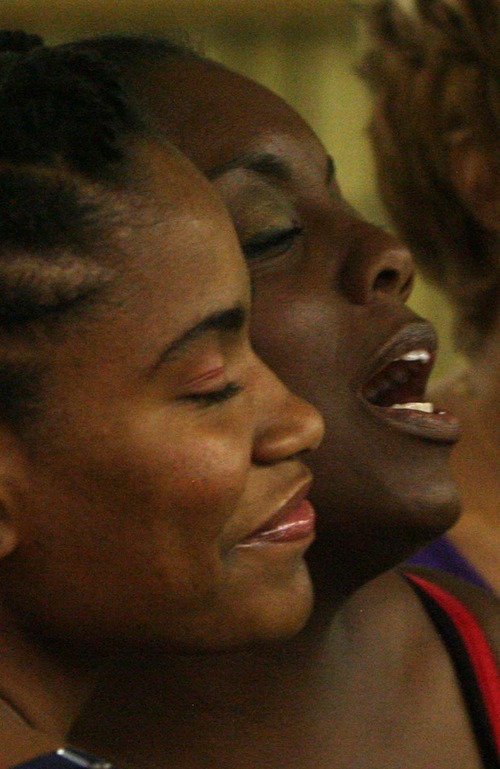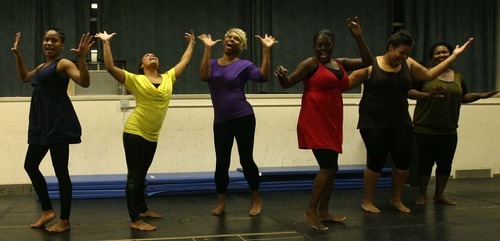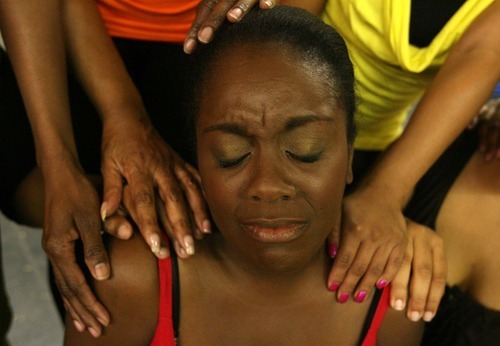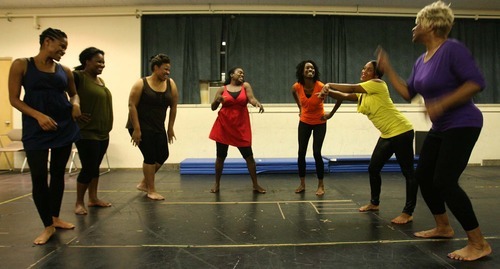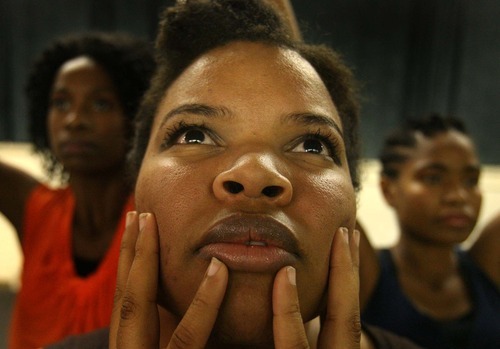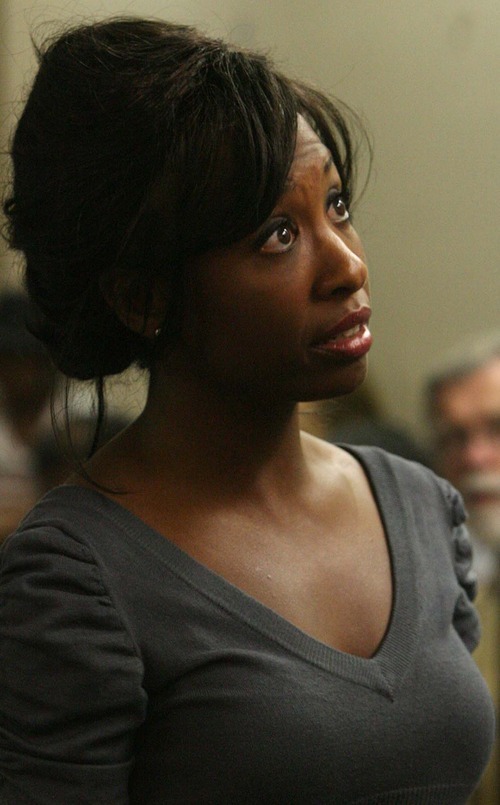This is an archived article that was published on sltrib.com in 2011, and information in the article may be outdated. It is provided only for personal research purposes and may not be reprinted.
Critics and theatergoers have long recognized that Ntozake Shange's "For Colored Girls Who Have Considered Suicide When the Rainbow Is Enuf" isn't like most other plays.
The script blazed across the drama world like a comet in 1975, when it premiered in Berkeley, Calif. With seven characters, each representing a color, compressed into 20 sections Shange called "choreopoems," the play left audiences devastated by its scenes of personal crisis, but also elevated by its propulsive force. Girded throughout by poetic dialogue at once strong but delicate, Shange's characters seemed to speak in a tone that blurred the line between private confession and public proclamation.
The play received a jolt of publicity with a 2010 film adaptation directed by Tyler Perry and staring Whoopi Goldberg and Janet Jackson but received mix reviews. Shange added to her script over time, with mention of AIDS and the wars in Iraq and Afghanistan weaved into scenes, making its dramatic arc elastic.
Like working with combustible elements in a lab, "For Colored Girls ..." can become too hot to handle without a cast and director prepared to meet it face to face.
For Dee-Dee Darby-Duffin, who plays "Lady in Red" for People Productions' upcoming version, that's a proposition she said she's more than ready for.
Darby-Duffin's mother read the script to her when she was 7 years old, living in Baltimore. Her mother and aunt put on their best clothes for an evening out whenever the play made its way into a local theater. As an adult, Darby-Duffin, now a school teacher in West Valley City, has recited and performed solo portions of the play.
"This play was part of my family," Darby-Duffin said. "I felt like I was always missing something until I could see it for myself, on stage."
The play opens with a "girl party" of friends in pajamas, exchanging stories of romantic exploits, barrelling headlong into a Puerto Rican dance hall, the chills of an abortion clinic, and the intensity and travails of love. Relationships with men are given their due, whether it's falling in love at the park, or the horror of domestic abuse. In one of the play's most inventive scenes, history and love collide when a woman compares her newfound boyfriend to Toussaint Louverture, the revolutionary who led Haiti to independence from French slavery.
Linking them all is the indestructible spirit of Shange's "colored" women, all part of a rainbow of experience that complement and strengthen each other. "For Colored Girls ..." reaches its crescendo for "a laying on of hands."
"I fell into a numbness, 'til the only tree I could see just picked me up and held me in the breeze," says Darby-Duffin as "Lady in Red." "I found God in myself, and I loved her. I loved her fiercely."
Angela Trusty, who plays "Lady in Brown," said that when she first read the script she worried about conveying the emotional core of her character, without having similar life experiences to draw upon. Through rehearsals she discovered that intensity toward her character wasn't as important as empathy.
"My favorite line from the play is 'moving to your own rainbow,' " Trusty said. "Not an African-American rainbow, or a Latino rainbow, but your rainbow. If you can identify with almost any type of struggle at all, you can identify with this play."
Facebook.com/saltlakenow —
Moving, grooving to your own rainbow
People Productions stages a rare local performance of Ntozake Shange's "For Colored Girls Who Have Considered Suicide When the Rainbow Is Enuf"
When • Nov. 4-20. Fridays and Saturdays, 7:30 p.m.; Sundays, 2:30 p.m.
Where • Sorenson Unity Center, 1383 S. 900 West, Salt Lake City
Info • $10-$15. Call 801-535-6534 or visit http://www.peopleproductions.org or http://www.sorensonunitycenter.com for more information.


